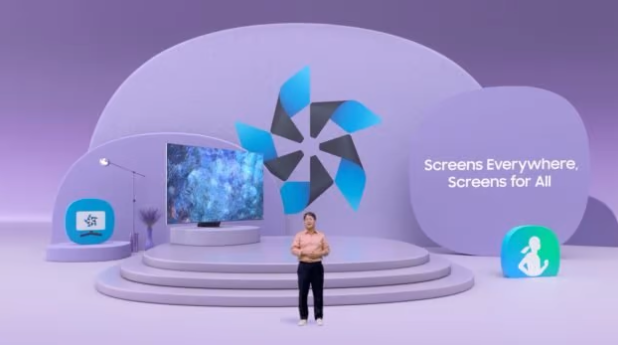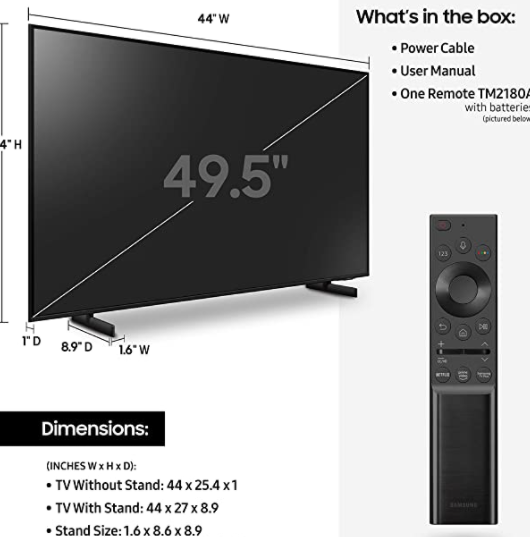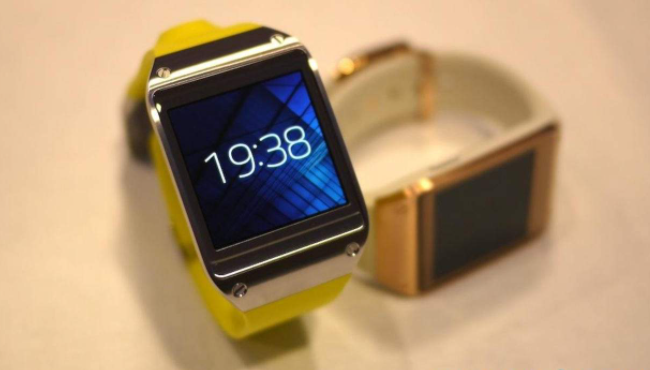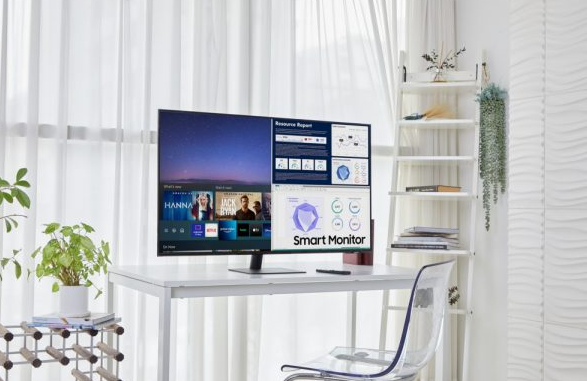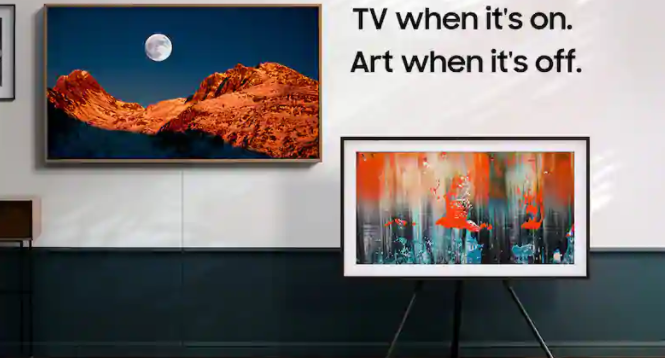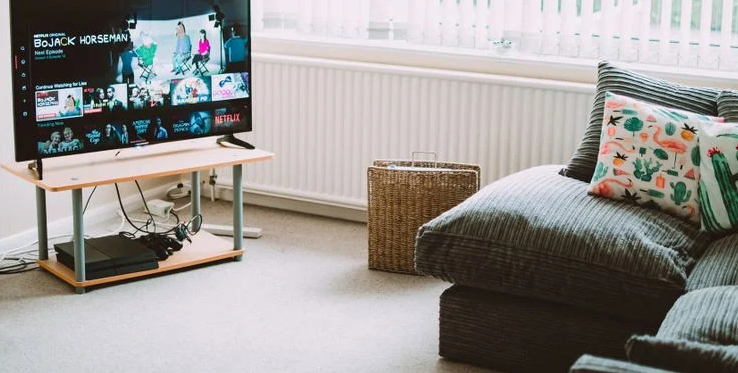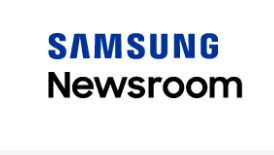-
Posts
139 -
Joined
-
Last visited
-
Days Won
6
Everything posted by Alex
-
Samsung has announced it is creating a cloud gaming service which would compete with Google Stadia, Nvidia GeForce NOW, and Xbox Game Pass. In the last few years, cloud gaming has gone from a pipedream to a crowded market, with competitors like Amazon, Facebook, Google, Microsoft, Nvidia, and Sony all competing for the attention of gamers everywhere. Even Nintendo, often intentionally trailing behind in new technologies, has allowed a few cloud-powered titles onto the Nintendo Switch, including Control and Kingdom Hearts. The latest competitor in the cloud gaming space is Samsung, via The Verge, as announced during the company’s developer conference. Specifically, Samsung is launching a “Cloud Game Platform” which aims to leverage Samsung’s Tizen platform for smart TVs to offer a “seamless, immersive gaming experience.” Very little else was shared during the developer conference in way of details about the platform, such as what controller players would be able to use, when Samsung’s Cloud Game Platform would launch, or how much it would cost. In a separate interview, Samsung’s Ju-Hyun Choi said that the goal of the service is “allowing users to play the latest games on their Samsung Smart TV.” From this, it seems clear there aren’t any immediate plans to bring this service to Samsung’s phones or other devices. One thing that stands out in the interview is how Samsung intends to develop this cloud streaming service. Samsung says they are “working closely with [their] current service partners,” which could suggest that rather than develop their own streaming technology, Samsung may simply use a partner company’s streaming offering. As The Verge points out, the last time Samsung tried to offer a cloud gaming service, in 2012, they worked with Gaikai to create a streaming app for their high-end TVs. Now, nearly ten years later, Stadia is one of the bigger players in the game streaming market, and Google has begun to offer Stadia’s streaming tech to companies like AT&T. While it’s far too early to say with any certainty, there’s a distinct possibility that Samsung’s new Cloud Game Platform could be powered by Stadia, but that’s purely speculation at this point. We’ll simply need to wait for the company to share more details, perhaps over the coming months. Source: https://9to5google.com/2021/10/26/samsung-cloud-game-platform/
-
Alongside improvements to Bixby, SmartThings, and Samsung Knox, Samsung also announced improvements to Tizen OS for smart TVs. During the ongoing Samsung Developer Conference 2021, the South Korean firm said it wants to consolidate its leadership in the TV segment with more intelligent software and deeper integration with its other services. Improved video calling, Samsung Health, and gaming on Tizen-powered smart TVs Keeping its ‘Screens Everywhere, Screen For All’ vision in mind, the company is introducing newer experiences to Tizen OS for smart TVs. Samsung has developed a better video calling experience on TVs in partnership with Google via AI-enabled focus and zoom features. Samsung Health can now use a webcam attached to a Tizen-powered smart TV to track user movements and provide real-time feedback during workouts. Samsung’s mid-range and high-end smart TVs already have various gaming-related features, including AMD FreeSync Premium, a 120Hz refresh rate, auto low-latency mode, and Game Bar. For an even better gaming experience, the company is bringing automated settings for low latency and HDR10+ calibration. Tizen For Business is a new platform for managing interactive digital signage displays For businesses, the South Korean firm will soon launch the Tizen For Business platform. It supports interactive e-boards in schools, kiosks at malls, and displays at airports, restaurants, stores, and subways. It will offer easy-to-use display management portals that businesses can use for real-time monitoring and remotely controlling screens. It also allows quickly applying settings to multiple devices with just one touch. Tizen is already the world’s biggest smart TV platform, and with the upcoming improvements, it will have more depth in its arsenal to compete with Amazon’s Fire TV, Google’s Android TV, and LG’s webOS platforms. Source: https://www.sammobile.com/news/samsung-tizen-os-smart-tv-improved-sdc-21/
-
That's Samsung Authorized Repair? They may end up performing a reinstall or re-flash. Hopefully its not a hardware issue. Its odd that it was working fine. One other thing I would try just to try a different network and rule it out...either take it to a friend/relatives and hook up to their wifi or hotspot a device like a phone and use the internet off the mobile device/different network to rule out any network internet blockage issues on your end.
-
Its not available on unfortunately. Do you have amazon prime video? I believe you can go through that.
-
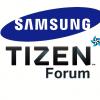
Question about the new Samsung TV remote
Alex replied to kostass123's topic in Samsung Tizen Smart TV
Yes the newer remotes are quite small. I recently bought a UN50AU8000FXZA and the remote is like this: I would try and pair the old remote or pick up a universal on Amazon like: -
Were you able to solve your issue? Sounds like a hardware problem.
-

Model UA48J6300 failing to connect wifi or hotspot
Alex replied to Herman's topic in Samsung Tizen Smart TV
By hard reset, have you unplugged the tv and waiting for 30 -60 sec? -
Newer watches yes
-
Is it still under warranty? I believe its 3 years from samsung
-
Samsung was one of the first major smartphone makers to jump on the smartwatch ship, and, unsurprisingly, its first smartwatch didn’t use Google’s nascent Android Wear back then. It struck off on its own with a customized version of Android running inside the Samsung Galaxy Gear. It has come full circle and has returned to Android again, this time with Wear OS running on the upcoming Galaxy Watch 4 series. Surprisingly, there might still be some owners of the Galaxy Gear around, and Samsung is now urging them to switch to its Tizen OS if they want access to some smartwatch apps. The Galaxy Gear launched way back in 2013 and was the only one of its kind, so it’s rather surprising to hear that Samsung still has the smartwatch and its users in mind eight years after. Even more surprising is that Samsung was actually still running a version of its app store specifically for that Android-based OS after all this time. Samsung is shutting that down next month, however, but it hasn’t abandoned owners of the smartwatch just yet (another surprise). Samsung actually gave Galaxy Gear owners a way forward back in 2014 when it was clear that it wasn’t going to stick to its own Android smartwatch OS. Back then, it offered an update to its new Tizen-based wearable platform, the very same OS that would take Samsung’s smartwatches to relative success for a couple of years. Apparently, not everyone took the opportunity back then, but Samsung is now pretty much forcing their hand. An update to the Samsung Galaxy Store notifies owners of the smartwatch that it will be shutting down the Galaxy Store for Galaxy Gear devices on August 5, 2021. While the smartwatch will continue to function, users won’t be able to install or reinstall apps after that date. They can upgrade to Tizen moving forward if they want access to apps, but it’s a one-way street and there’s no turning back. Moreover, not all Galaxy Gear apps will be available on Tizen, but there might be similar ones by now. It is rather impressive that Samsung has apparently managed to support a relatively obscure 2013 smartwatch for this long. Unfortunately, the same story can’t be said for more recent Tizen-based smartwatches that may be blocked from upgrading to the new Samsung-branded Wear OS. Whether that’s because of hardware requirements or some arbitrary policy from Google remains a mystery. Source: https://www.slashgear.com/galaxy-gear-owners-must-upgrade-to-tizen-or-lose-galaxy-store-access-05681014/
-
Samsung’s Smart Monitor range is expanding this week, with a new 43-inch 4K M7 model and a smaller, 24-inch M5 model with 1080p resolution. The key thing that sets these monitors apart is the introduction of Smart TV technology, powered by Samsung’s own Tizen processors. Samsung wants these to be “do-it-all” displays, good for work, gaming and general entertainment, which will be accessible through a Smart TV style UI with support for apps like Netflix and Amazon Prime Video. These Smart Monitors also feature apps for remote desktop connections and productivity apps like Microsoft Office. This functionality essentially turns the monitor into its own all-in-one computer. Samsung now has Smart Monitors in 43-inch and 32-inch 4K options, as well as 1080p versions from 24-inches up to 32-inches, with prices starting at $229.99. Source: https://www.kitguru.net/peripherals/monitors/matthew-wilson/samsung-launching-new-tizen-powered-smart-monitors/
-
For a limited time, Samsung is offering $100 off its 50", 55", 65" and 75" Frame TVs. This deal looks to be ending on June 6th. Click Here to Get the Deal! The elegant, modern design blends flawlessly with your home décor or gallery wall. Transform The Frame into a beautiful work of art when you're not watching TV with Art Mode. The Frame’s slim QLED 65-inch TV display showcases enhanced picture quality, no matter what is on-screen.
-
At I/O 2021, Google announced the next version of Wear OS. The company teamed up with Samsung and merged Tizen with Wear OS for the latest generation of its wearable OS to fix all its shortcomings. This led to speculation that Samsung could also ditch Tizen in favor of Android TV for its smart TVs. However, that will not happen as Samsung intends to continue using Tizen OS for its smart TVs. Samsung Prefers Tizen to Android TV Despite Android TV rapidly gaining popularity and becoming the default OS of choice for the majority of smart TVs out there, Samsung has decided to stick to Tizen for its smart TVs. The company confirmed in a statement to Protocol that "Tizen still is the default platform for our smart TVs going forward." Samsung has been using Tizen on its Gear and Galaxy-branded wearables for years. However, with the OS now merged with Wear OS, the chances of the company launching any more Galaxy smartwatches running Tizen are pretty much nil. Apart from Samsung, LG is the other major TV OEM that does not ship its smart TVs with Android TV. Instead, it uses WebOS for its TVs. Samsung also used Tizen on its Z series of smartphones, though the lineup was discontinued after failing to gain traction among consumers. Source: https://www.makeuseof.com/samsung-use-tizen-smart-tvs/
-
Not long ago a leaker claimed that an upcoming Samsung smartwatch would run Android (presumably meaning Wear OS), and now we've seen evidence that this may well be true. Twitter user Ivan_Meler (who shared the data with XDA Developers) found reference to a device codenamed 'Merlot' in some source code for the Samsung Galaxy S20, and alongside it there was mention of Wear OS. That therefore suggests both that this is a wearable, and more importantly that it's one that runs Google's smartwatch operating system. That said, there's no indication here of exactly which smartwatch 'Merlot' is, so we can't definitively say that it's the Samsung Galaxy Watch 4. It could alternatively be the Samsung Galaxy Watch Active 3 or something else altogether. Perhaps even the first in a new line of Wear OS wearables from Samsung. Whatever it is though, this seems close to a confirmation that Samsung has a Wear OS wearable in the works, and even with a previous leak backing it up, that surprises us slightly, as in many ways Tizen (which current Samsung smartwatches use) is a superior smartwatch operating system. Still, a Samsung wearable powered by Wear OS could be just what's needed to reinvigorate Google's struggling operating system, so we're certainly intrigued to see how it will turn out. It's not clear right now when this wearable will land (assuming it exists), but as soon as it does you can be sure that TechRadar will test it in full, and tell you whether the switch to Wear OS was a smart one. Source: https://www.techradar.com/news/samsung-galaxy-watch-4-looking-ever-more-likely-to-run-wear-os-rather-than-tizen
-

Streaming apps not available on Tizen Smart TV 9000 series
Alex replied to dizzye09's topic in Samsung Tizen Smart TV
What apps are you looking for? -
Try unplugging the set for at least 60 seconds for a hard restart and then try again.
- 2 replies
-
- class 7
- not working
-
(and 2 more)
Tagged with:
-

Samsung makes Tizen available for third-party TVs
Alex posted a topic in Tizen OS General Discussion
Samsung has annnounced novel third-party compatiblity with TVs as part of its 2019 Developer Conference (SDC). This also involves the roll-out of new tools, so as to help developers generate fresh apps for this ecosystem. Therefore, more obsolete or perhaps less-used smart screens could become the face of interesting side projects or new insights into what this OEM's ecosystem could deliver. This year's SDC also debuted new tools that may make ends like this even easier in the future. They include EastST, which might replace self-contrived playback modules in order to check that content is running on a given TV as planned. Wits is the perhaps overly on-the-nose term for a new tool that allows immediate uploads of code edit to a Tizen-based TV, so that the developers can view said updates without delay. However, the most important user-facing new facility here may be TIFA, or Tizen Identifier For Advertising. It allows advertisement opt-outs that may be more informative than ever before. It is less than super-clear why Samsung has taken such steps; however, a prime candidate rationale is to raise awareness of Tizen's open-source and cross-platform nature. Accordingly, it may pull target products into an ecosystem that also includes essentially Linux-based smartwatches, other wearables and pre-existing Samsung TVs. Source: https://www.notebookcheck.net/Samsung-makes-Tizen-available-for-third-party-TVs.441407.0.html -
An 8K TV in and of itself isn't really new. But they're getting ridiculously cool. The new QLED line from Samsung in 2020 is headed up by the Q950. It's Tizen-based, of course, which is the semi-open-source operating system the company has been using for years. (That's in contrast to things like webOS from LG, or Android TV, or Roku TV.) There's also plenty of AI baked in — because what doesn't have AI baked in at this point. And that'll do things like automatically adjust brightness and contrast based on the ambient light in the room. It'll also do its own thing to compress the video so that you're not sucking as much bandwidth as you might otherwise. (And Samsung says it's working directly with Amazon on this to scale up standard-definition content in Prime Video to 4K.) But what you'll absolutely notice is the near lack of a bezel. Samsung says there's a nearly 99 percent screen-to-body ratio, which essentially makes the bezel disappear. And the TV itself is 15mm thick and has a completely flat back, so it'll fit flush against a wall. And somehow Samsung has managed to cram killer audio into the Q950 as well. It's got speakers on each side of the display, and woofers in the back for virtual 5.1 audio. Will that be better than external speakers? Perhaps not. But it's still an incredible feat in a device that's less than 2 centimeters thick. And 2020's 8K TVs are making use of MicroLED panels across the board, from the 75-inch size all the way up to a monstrous 150 inches. That's allowing for the thinness and minuscule bezels. And it just looks good. Source: https://www.cordcutters.com/samsungs-newest-tvs-are-spectacular-and-almost-absolutely-are-not-you-yetv
-
Here's the latest list of Samsung TVs on sale for Black Friday... Walmart Televisions Samsung 50" NU6900 Series 4K Smart TV with HDR $278.00 Samsung 55" NU6900 Series 4K Smart TV with HDR $329.00 Target Televisions Samsung 43" 4K Smart TV with HDR $229.99 Samsung 50" 4K Smart TV with HDR $279.99 Samsung 50" 4K Smart TV with HDR $349.99 Samsung 55" 4K Smart TV with HDR $329.99 Samsung 55" 4K Smart TV with HDR $449.99 Samsung 65" 4K Smart TV with HDR $479.99 Samsung 65" 4K Smart TV with HDR $599.99 Sam's Club Televisions Samsung 55" 7 Series 4K Curved Smart TV with HDR $459.00 Samsung 65" 7 Series 4K Curved Smart TV with HDR $599.00 Best Buy Televisions Samsung 43" 6 Series 4K Smart TV with HDR $229.99 Samsung 50" 7 Series 4K Smart TV with HDR $349.99 Samsung 50" NU6900 Series 4K Smart TV with HDR $279.99 Samsung 55" 7 Series 4K Smart TV with HDR $449.99 Samsung 55" NU6900 Series 4K Smart TV with HDR $329.99 Samsung 55" Q60 Series 4K Smart TV with HDR $699.99 Samsung 65" 7 Series 4K Smart TV with HDR $599.99 Samsung 65" NU6900 Series 4K Smart TV with HDR $479.99 Samsung 65" Q60 Series 4K Smart TV with HDR $999.99 Samsung 65" Q70 Series 4K Smart TV with HD $1,199.99 Samsung 65" Q80 Series 4K Smart TV with HDR $1,699.99 Samsung 70" 6 Series 4K Smart TV with HDR $549.99 Samsung 70" Class LED 6 Series 2160p Smart 4K UHD TV with HDR $549.99 Samsung 75" NU6900 Series 4K Smart TV with HDR $749.99 Samsung 75" Q60 Series 4K Smart TV with HDR $1,499.99 Samsung 75" Q70 Series 4K Smart TV with HD $1,999.99 Google Shopping Televisions Samsung 50" 6900 Series 4K Smart TV with Google Home Mini $278.00 Costco Televisions Samsung 43" Class 6 Series 4K UHD LED LCD TV $229.99 Samsung 50" Class 6 Series 4K UHD LED LCD TV $279.99 Samsung 55" Class 6 Series 4K UHD LED LCD TV $349.99 Samsung 55" Class Q6D Series 4K QLED LCD TV $699.99 Samsung 55" Class Q7D Series 4K QLED LCD TV $999.99 Samsung 58" Class 6 Series 4K UHD LED LCD TV $379.99 Samsung 65" Class 6 Series 4K UHD LED LCD TV $499.99 Samsung 65" Class 8 Series 4K UHD LED LCD TV $779.99 Samsung 75" Class 6 Series 4K UHD LED LCD TV $749.99 List from https://blackfriday.gottadeal.com/
-
Today at the Samsung Developer Conference the company announced that it would open its smart TV platform, Tizen TV, to third-party manufacturers. “With Tizen, consumers can stream content from hundreds of apps,” Sang Kim, Global Head of Smart TV Business Development said during the keynote. “For the first time we’re going to make the Tizen TV OS available to other manufacturers.” According to Kim, over 100 million TVs currently support Tizen and while that’s a substantial number, this move could stem the flow of manufacturers like Hisense and TCL from rushing to Roku TV and Android TV platforms for their smart platforms. It could even increase the Bixby user base too, which is a key goal for Samsung. So what, exactly, makes Tizen so appealing that TV makers would want to adopt it? Primarily its Samsung TV Plus platform which offers free content and integrates with over-the-top cable providers, as well as its large app library powered by developers (hence why the announcement was made at its developer conference). Unfortunately, beyond the announcement of news, Samsung isn’t offering any additional details – it’s not ready to announce potential partners, for example, nor is it ready to reveal when the first third-party Tizen TVs will be available. The silver lining? With CES 2020 right around the corner, more information is likely coming in two month's time. source: https://www.techradar.com/amp/news/samsungs-tv-os-tizen-tv-is-now-available-to-third-party-tv-makers
-
Samsung Electronics announced today that it will support the world’s first 8K HDR10+ content, partnering with major European streaming services. With this announcement, Samsung has established itself as the leader of the HDR (High Dynamic Range) specification industry. CHILI, The Explorers and MEGOGO – three key OTT (Over-the-top) service providers in Europe – will adopt 8K HDR10+ along with its support for 4K HDR10+. HDR10+ technology optimizes brightness and maximizes the contrast ratio, making bright areas brighter and dark areas darker. The feature is available on all UHD TV and 2019 8K TV models, including Samsung’s lineup of QLED TVs. “With HDR emerging as one of the most important technologies for ultra-high picture quality, our HDR10+ format enables every image to be accurately displayed on screen just as the creator intended,” said Hyogun Lee, Executive Vice President of the Visual Display Business at Samsung Electronics. “We will continue to strengthen our industry leadership through establishing partnerships with top streaming service providers and equipping our televisions with the technology needed to support the world’s first 8K HDR10+.” “Our main goal in this partnership with Samsung is to offer the highest-quality content services available to our customers,” said Victor Chekanov, CEO at MEGOGO. “We will maintain our initiative in the Russian OTT service market and plan to provide dozens of HDR10+ movies to Samsung Smart TV users starting late this summer.” Aside from the aforementioned OTT streaming services, several other industry-leading content partners are collaborating with Samsung. Rakuten TV, Deutsche Telekom’s Magenta TV and Videociety are all expected to adopt HDR10+ support for its respective VOD services between Q4 2019 and Q1 2020. Also, Molotov, the first French OTT streaming service to offer live and on-demand TV channels all in one place, is also considering to adopt HDR10+. The growing list of premiere content partners is a testament to the industry’s commitment to the best viewing experience possible for consumers. HDR10+ content availability continues to expand. Recent announcements from Universal Pictures Home Entertainment and Warner Bros. Home Entertainment debuting HDR10+ on UHD Blu-ray with “The Secret Life of Pets 2” and “Godzilla: King of the Monsters”, respectively, add to the UHD Blu-ray discs already released from Twentieth Century Fox and others. Since Samsung began the HDR10+ logo certification program with Panasonic and 20th Century Fox last year, 81 companies have joined the program, boosting the program’s influence in the industry. Samsung has also strengthened its effort with the new opening of an HDR10+ center in China last December, following Korea, Japan and the U.S. With TV manufacturers such as Hisense obtaining HDR10+ certification in China, the HDR10+ alliance is expected to expand even further. Along with HDR10+ certifications of existing TVs and smartphone products, Samsung is working to implement the program for its B2B products. For example, micro LED models such as The Wall Pro and The Wall Lux have been HDR10+ certified, and the company plans to expand the ecosystem to include Samsung’s line of LED products. For more information on Samsung’s HDR10+-supported products, please visit https://hdr10plus.org/ Source: https://news.samsung.com/global/samsung-electronics-enables-worlds-first-8k-hdr10-plus-technology
-

No native Strava mobile app for Tizen OS smartphones
Alex replied to maljaros's topic in Samsung Tizen Smart Phone
You should contact Strava support as they would be the ones to build it: https://support.strava.com/hc/en-us



